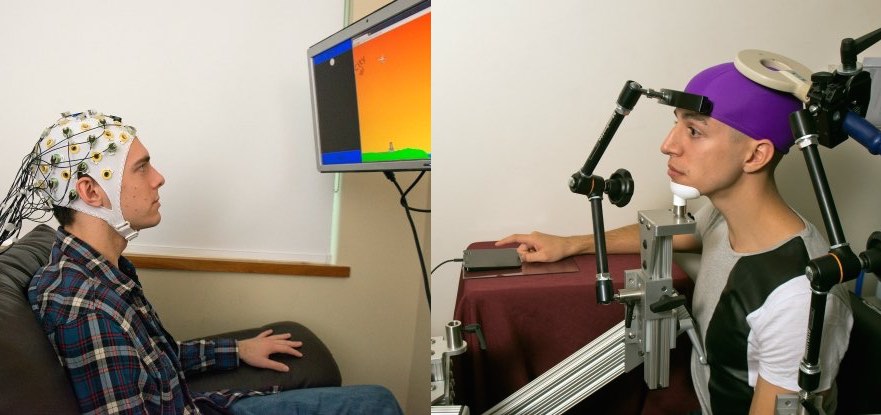At the University of Washington, people have been reading each other’s minds–sort of.
Scientists connected together the brains of two people in a way that let them play a game of 20 Questions, even though they were located a mile apart.
One person, the “respondent,” was shown objects on a computer screen while connected to an EEG machine that measures electrical brain activity.
Scientists Find Way to Turn Cancer Back Into Healthy Tissue in Lab
A second person, the “inquirer,” is shown a list of items the respondent may be looking at — say a dog. The inquirer then clicks on questions to narrow down the object’s identity — such as “Is the object an animal?”
The respondent answers simply by looking at one of two flashing lights on his computer screen — one for “yes” and one for “no.”
The action sends a response from the respondent’s brain activity to a magnetic coil behind the inquirer’s head, but only a “yes” response will generate enough energy to cause the inquirer to believe he’s seen a flash of light.
It’s a phenomenon called a phosphene — seeing light without light actually entering the eye.
Apes Appear To Have Potential For Human Speech: Study
Five pairs of people played 20 rounds of the game — ten using an operational brain-to-brain link and ten where the subjects didn’t know the link was turned off.
The scientists found when the link worked, subjects got the answers right 72% of the time compared to just 18% of the time when the link was shut off.
The scientists believe it is the most complex brain-to-brain experiment ever conducted. It was underwritten in part by a one million dollar grant from the W.M. Keck Foundation and their results have been published in the journal PLOS One.
Ice Bucket Challenge Leads to ALS Breakthrough, Researchers Announce
“What we are doing is…opening up this box and taking signals from the brain and with minimal translation, putting them back in another person’s brain,” lead author Andrea Stocco said.
The researchers say their work could one day in the distant future allow people to “upload” information directly to their brain.
(WATCH the University of Washington video or READ more at NBC News) Photo: University of Washington
No One Can Read Your Mind, Yet. . . Share This With Them…




















